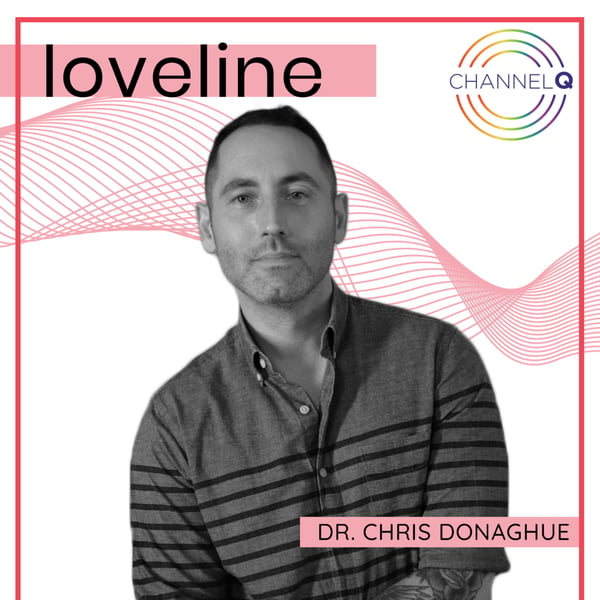Loveline 6-22-22
Loveline with Dr. Chris
Audacy
4.3 • 804 Ratings
🗓️ 23 June 2022
⏱️ 53 minutes
🧾️ Download transcript
Summary
History of monogamy
Transcript
Click on a timestamp to play from that location
| 0:24.9 | Good evening, everybody. How y'all doing? Welcome to the show. Got a great show plan for you. It's kind of an interesting one. I, um, oh, it's the return to a topic that we talked about a long, long time ago. And I kind of mentioned it casually in passing. And a couple people have asked me to drop deeper into it. As always, you know, if there's a topic you want us to hit circle back to drop deeper into, you tell us in the DMs on our Lovelin IG page. Some of y'all slide into my personal page at Dr. Donahue on IG. And a couple people were like, yo, you keep talking about |
| 0:30.2 | toxic monogamy, you know, why is monogamy bad, but blah, blah, blah. And it's like, oh, you know, toxic monogamy doesn't mean monogamy is bad. It's a specific form of |
| 0:38.2 | monogamy that is a toxic form. So, and there's so much bundled up into that. So we're going to |
| 0:43.7 | talk about that, but it really becomes a larger topic of relationality and sexuality and |
| 0:47.9 | real juicy and meaty. So we'll get into that because you know what you ask for it. You get what you want. It's literally like Burger King. Does Burger King still say that you get it your way or is that or have we evolved beyond that because that got taken advantage of? But when I was a kid, that was the joke. People would be like, this ain't Burger King. You don't get it your way. But you do hear it love lines. So it is like Burger King. but we do veggie burgers because, you know, I'm vegan. |
| 1:12.6 | Okay. So I wanted to open up the show by just talking about something that I think needs more normalization. |
| 1:18.4 | And it becomes, again, a wider conversation, as does everything I talk about. |
| 1:22.0 | There's this idea that children need two parents. There's this idea that children need a father and a mother. |
| 1:26.7 | And I'll hear people say, oh, they need a father figure. Children need primary caregivers. The gender of the primary |
| 1:32.3 | caregiver is not relevant because we don't need to raise children in standard forms of gender |
| 1:38.7 | training. We want children to be raised authentically, which is them having access to a wide variety |
| 1:44.5 | of options so they can develop into the person that they want to be, not what culture wants. |
| 1:48.8 | And we're stepping outside of the binary and we're realizing that there is no right way to be a man |
| 1:52.8 | or right way to be a woman. |
| 1:54.2 | And children need primary caregivers. |
| 1:56.3 | And everyone fathers differently, everyone mothers differently. |
| 1:59.1 | There isn't even one gold standard for what it would mean to have a father. A lot of fathers are absent or abusive |
| 2:05.5 | or raise their children in toxicly masculine ways. Mothers can be quite abusive and toxic and |
| 2:12.1 | also raise their children and enforce toxic masculine ways. So let's step outside of this idea that children need |
| 2:18.6 | a certain number or certain genderative caregivers. No studies support that. And in fact, |
| 2:25.6 | actually, tons of studies show that children raised in same-sex environments actually do better in |
| 2:30.6 | school, have higher levels of relational skill sets, better relational skills, |
... |
Please login to see the full transcript.
Disclaimer: The podcast and artwork embedded on this page are from Audacy, and are the property of its owner and not affiliated with or endorsed by Tapesearch.
Generated transcripts are the property of Audacy and are distributed freely under the Fair Use doctrine. Transcripts generated by Tapesearch are not guaranteed to be accurate.
Copyright © Tapesearch 2025.

